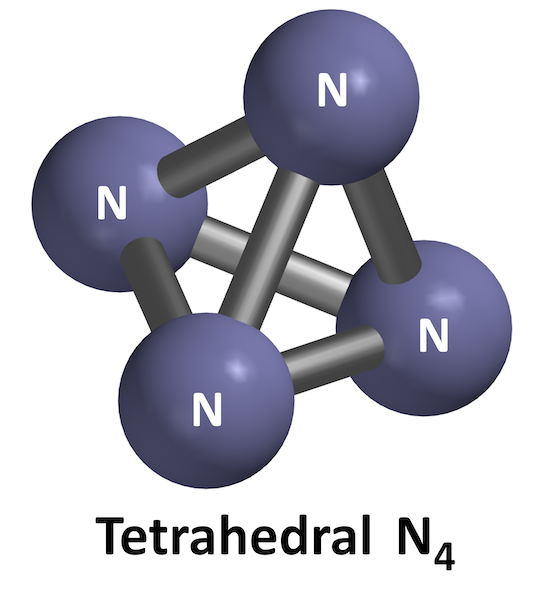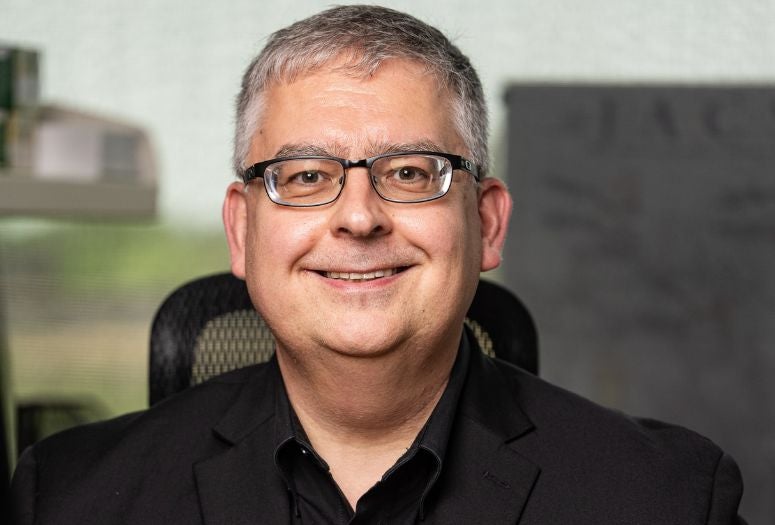Rice University chemistry professor László Kürti is a recipient of the 2025 Ross M. Brown Investigator Award, the California Institute of Technology’s Brown Institute for Basic Sciences announced May 19. This year’s cohort, the second selected by the Brown Institute, includes eight distinguished midcareer faculty members tackling high-risk, high-reward basic research in the physical sciences with research anticipated to have long-term practical applications.
The Brown Investigator Awards were founded in 2020 by entrepreneur and Caltech alumnus Ross M. Brown and established by the Brown Science Foundation. Each investigator will receive up to $2 million over five years. Kürti was selected for his effort to construct stable, neutral polynitrogen cage compounds — molecules composed entirely of nitrogen atoms that can release large amounts of energy without combustion and decompose cleanly into hot nitrogen gas. These compounds have the potential to revolutionize propulsion and energy storage.
“Midcareer faculty are at a time in their careers when they are poised and prepared to make profound contributions to their fields,” Brown said. “My continuing hope is that the resources provided by the Brown Investigator Awards will allow them to pursue riskier innovative ideas that extend beyond their existing research efforts and align with new or developing passions, especially during this time of funding uncertainty.”
 For Kürti, the award signifies a turning point for a research concept he has developed for more than six years. “I’m greatly honored,” he said. “We will learn a tremendous amount in the next five years and gain a much clearer understanding of the challenges ahead.”
For Kürti, the award signifies a turning point for a research concept he has developed for more than six years. “I’m greatly honored,” he said. “We will learn a tremendous amount in the next five years and gain a much clearer understanding of the challenges ahead.”
Kürti’s research focuses on a molecule called tetrahedral N4, which consists of four nitrogen atoms bonded together in a compact, pyramid like structure. High-level theoretical calculations suggest it is stable under ambient conditions yet can release vast amounts of energy on demand. When triggered, this neutral caged polynitrogen molecule decomposes directly into nitrogen gas, generating immense heat without producing carbon dioxide or water vapor.
The clean energy potential is significant. “You could also imagine N4 as a new type of fuel for vehicles,” Kürti said, noting potential applications for turbines, engines and electricity generation. “Eventually, N4 and other stable, neutral polynitrogen cages could be used to power rockets, helping us reach the moon or Mars faster and with heavier payloads.”
Since its inception, the Brown Investigator Award has recognized 21 scientists. The 2024 recipients were the first selected under Caltech’s newly established Brown Institute. Previous awardees include Nuh Gedik from the Massachusetts Institute of Technology, Tanya Zelevinsky from Columbia University and Andrea Young from the University of California, Santa Barbara, among others who are addressing foundational problems in quantum science, atmospheric chemistry and materials physics. Brown Investigators across all cohorts gather annually to exchange ideas and updates on their research.
To form each new class of honorees, select U.S. research universities are invited to nominate recently tenured faculty conducting innovative work in the physical sciences. An independent scientific review board evaluates the candidates and recommends grant recipients. Caltech uses separate funds from the Brown gift to advance foundational research in chemistry and physics at its campus rather than nominating its scientists for the award.

